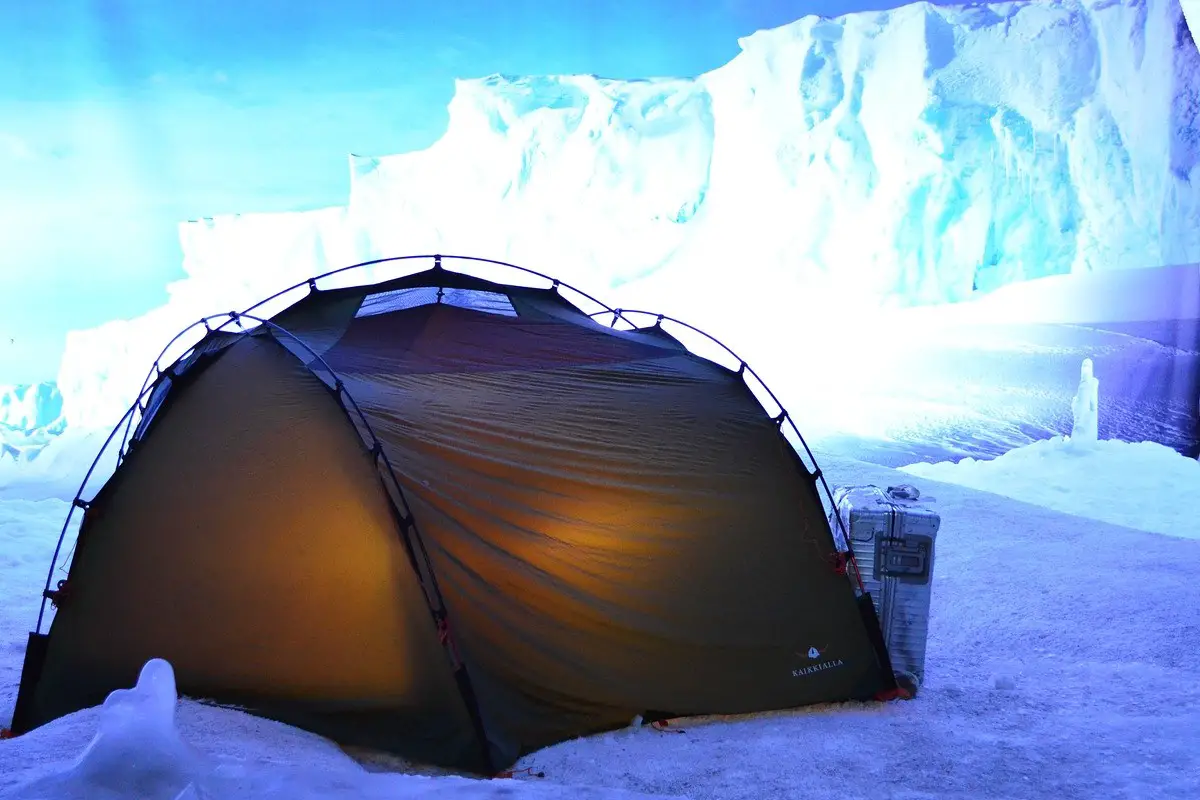Winter camping offers a unique and exhilarating experience, but it also presents its own set of challenges. To ensure a safe and enjoyable adventure, it’s crucial to be well-prepared. In this comprehensive winter camping blog, we’ll explore 15 essential winter camping survival tips, focusing on winter camping safety, wilderness survival techniques, and winter camping emergency preparedness. Let’s dive in winter camping safety tips!
1. Dress in Layers for Warmth and Comfort
Dressing appropriately is key to winter camping survival. Layering helps regulate body temperature, allowing you to stay warm in varying weather conditions. Start with moisture-wicking base layers, add insulating layers, and finish with a waterproof and windproof outer layer.
2. Choose the Right Winter Camping Gear
Invest in high-quality winter camping gear, including a four-season tent, a warm sleeping bag, and an insulated sleeping pad. Your gear can significantly impact your comfort and safety while camping in the winter wilderness.
3. Master the Art of Fire-Making
Knowing how to start a fire in winter is essential for staying warm and cooking food. Pack waterproof matches, a fire starter, and gather dry tinder and firewood beforehand. Practice your fire-making skills in various conditions.
4. Campsite Selection Matters
Selecting the right campsite is crucial for winter camping safety. Choose a location away from potential hazards like falling trees and avalanches. Opt for higher ground to avoid flooding and ensure proper drainage.
5. Stay Hydrated and Well-Nourished
Winter camping can be dehydrating. Pack a reliable water filtration system and carry extra water or a way to melt snow. Bring high-energy, easy-to-cook food to keep your body fueled and warm.
6. Be Mindful of Hypothermia
Learn the signs of hypothermia and how to prevent it. Dress in dry clothing, stay active, and seek shelter immediately if you or your camping companions show signs of hypothermia, such as shivering uncontrollably or slurred speech.
7. Prioritize Insulation
Proper insulation is vital for winter camping survival. Insulate your tent with a thermal liner and use a high-quality sleeping bag rated for sub-zero temperatures. Insulating your body from the cold ground is equally important; use an insulated sleeping pad to prevent heat loss.
8. Pack Emergency Shelter
Carry a lightweight emergency shelter, such as a bivy sack or a space blanket, in case you need to spend an unexpected night outdoors. These shelters provide crucial protection from the elements and help retain body heat.
9. Know Basic First Aid
Be prepared to handle common winter-related injuries, such as frostbite and minor burns. Pack a well-stocked first aid kit and familiarize yourself with basic first aid procedures.
10. Stay Informed About Weather Conditions
Check weather forecasts regularly before and during your winter camping trip. Sudden weather changes can impact your safety. Be prepared to adjust your plans based on updated weather information.
11. Practice Leave No Trace Principles
Respect the environment and practice Leave No Trace principles. Pack out all your waste, avoid damaging vegetation, and minimize your impact on the natural surroundings.
12. Plan Your Routes Carefully
If you plan on hiking or exploring, inform others about your intended routes and expected return time. Stick to marked trails and avoid venturing into unfamiliar or hazardous areas.
13. Stay Calm and Think Clearly in Emergencies
In case of an emergency, stay calm, assess the situation, and make informed decisions. Panicking can worsen the situation. Carry a whistle to signal for help if needed.
14. Invest in Quality Winter Footwear
Keeping your feet warm and dry is essential. Invest in insulated, waterproof boots with proper traction to prevent slips and falls on icy terrain.
15. Learn Basic Navigation Skills
Familiarize yourself with basic navigation skills using a map and compass. GPS devices and smartphones can fail in extreme cold. Having navigation skills ensures you can find your way back to camp or civilization if needed.
How to Survive in the Wilderness in the Winter:
While winter wilderness survival may seem daunting, with the right knowledge and skills, you can navigate the challenges and enjoy the tranquility of nature even in the coldest months. Here are essential winter camping tips and tricks to help you survive and thrive in the winter wilderness:
Knowledge is Power: Educate yourself about the specific winter conditions of the wilderness area you plan to explore. Understand the local wildlife, plant life, and potential hazards. Knowing the terrain and weather patterns will help you make informed decisions.
Dress Appropriately: Wear layers of clothing to regulate your body temperature. Choose moisture-wicking fabrics for your inner layer, insulating materials for warmth, and waterproof, windproof outer layers to shield against the elements. Don’t forget to wear waterproof boots and insulated gloves or mittens.
Building Shelter: If you find yourself stranded, building a shelter is crucial for protection against the cold. Look for natural shelters like caves or rock formations. If those aren’t available, create a makeshift shelter using branches, leaves, and snow. A properly constructed shelter can trap body heat and keep you warm.
Starting a Fire: Master the skill of starting a fire in winter conditions. Carry waterproof matches, a lighter, or a fire starter kit. Look for dry tinder, such as pine needles or inner bark from dead trees. Create a windbreak to shield the fire from gusts, and keep it well-fed with fuel to maintain heat.
Finding Water: Finding a water source is crucial for survival. Melt snow or ice for drinking water, but purify it before consumption to remove impurities. Avoid eating snow directly, as it can lower your body temperature.
Food Sources: Familiarize yourself with local edible plants and wildlife. Foraging for edible plants and hunting small game can provide essential nutrients. Carry high-energy snacks like nuts and dried fruits to keep your energy levels up.
Stay Active: Physical activity generates body heat. Stay active to maintain warmth, but be cautious not to overexert yourself, which can lead to sweating. Wet clothing from sweat can make you colder, so manage your activity level wisely.
Signaling for Help: In case you need rescue, use signaling devices like whistles or mirrors to attract attention. Create visible signals in the snow, such as large symbols or letters, to increase your chances of being spotted from the air.
Stay Positive and Calm: Mental resilience is as important as physical preparedness. Stay positive, focused, and calm. Panic can lead to poor decision-making. Practice mindfulness techniques to manage stress and stay composed in challenging situations.
Remember, survival in the winter wilderness requires preparation, knowledge, and adaptability. By honing your skills, staying aware of your surroundings, and maintaining a positive mindset, you can increase your chances of safely navigating the winter wilderness and returning home unharmed.
Read More
24 Hour Beaches Near Me, Ultimate Guide
Winter Camping in an RV Comprehensive Guide to Embrace the Chill
Winter Camping in a Tent: How to Stay Warm in a Tent in the Winter
RV Modifications That Add Value: Enhancing Comfort, Resale Value, and User Experience
Camping Games for Kids to Play in the Tent: Rainy Day and Nighttime Adventures
How to Fix a Leaky Roof on an RV Yourself: DIY RV Roof Repair Tips and Techniques

